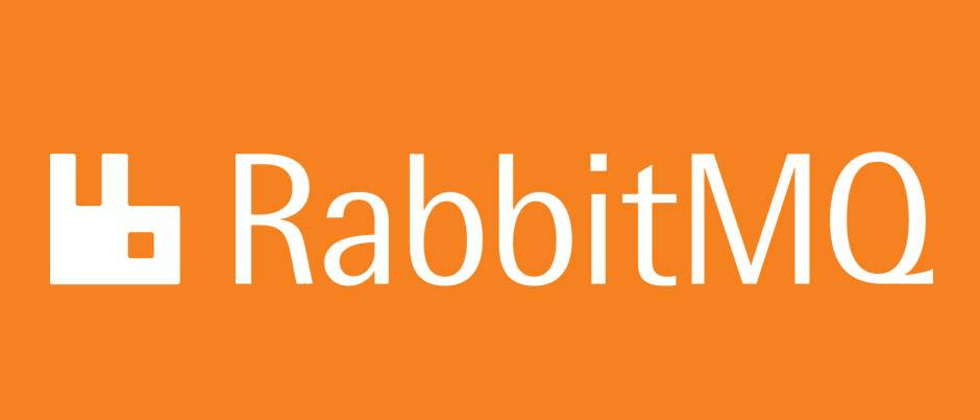Let's study the message queue, now let's build it briefly.
1. Docker build RabbitMQ
1.1 Query and download RabbitMQ mirror
docker search rabbitmq// 选择可以访问web管理界面的tag
docker pull rabbitmq:management1.2 Run RabbitMQ mirroring
// 设置账号密码都为admin
docker run -dit --name myrabbitmq -e RABBITMQ_DEFAULT_USER=admin -e RABBITMQ_DEFAULT_PASS=admin -p 15672:15672 -p 5672:5672 rabbitmq:management1.3 Access server IP on the browser: 15672
The following page appears to indicate successful startup
2. Build a SpringBoot project to integrate RabbitMQ
2.1 pom.xml
Add web and rabbitmq dependencies
<dependency>
<groupId>org.springframework.boot</groupId>
<artifactId>spring-boot-starter-amqp</artifactId>
</dependency>
<dependency>
<groupId>org.springframework.boot</groupId>
<artifactId>spring-boot-starter-web</artifactId>
</dependency>
<dependency>
<groupId>org.springframework.boot</groupId>
<artifactId>spring-boot-starter-test</artifactId>
<scope>test</scope>
</dependency>
<dependency>
<groupId>org.springframework.amqp</groupId>
<artifactId>spring-rabbit-test</artifactId>
<scope>test</scope>
</dependency>2.2 aplication.yml
Configure rabbitmq's address, username, password, etc.
spring:
rabbitmq:
host: localhost
port: 5672
username: admin
password: admin2.3 New Switch SenderConfig.java
There are the following three commonly used switches, we use the third one here
DirectExchange
Directly connected switch, according to the routing key carried in the message, forward the message to the corresponding queue
FanoutExchange
Sector switch, after receiving the message, it will forward the message to all queues
TopicExchange
The topic switch, according to the routing key carried in the message and the rules of the switch and the queue binding key, forward the message to the corresponding queue
rule:
* (Asterisk): Indicates that a character must appear
# (Pound sign): Represents any number of characters
/**
* 交换机
* @author zhouzhaodong
*/
@Configuration
public class SenderConfig {
/**
* ----- 交换机 -----
* 参数意义:
* name: 名称
* durable: 持久化
* autoDelete: 自动删除
*/
@Bean
public TopicExchange topicExchange() {
return new TopicExchange("topicExchange", true, false);
}
/**
* ----- 队列 -----
*/
@Bean
public Queue queueOne() {
return new Queue("queueOne", true);
}
@Bean
public Queue queueTwo() {
return new Queue("queueTwo", true);
}
@Bean
public Queue queueThree() {
return new Queue("queueThree", true);
}
/**
* ----- 绑定 -----
* routingKey就是路由规则,消息对应的队列,用来区分不同的消息队列
*/
@Bean
public Binding bindingFanoutOne() {
return BindingBuilder.bind(queueOne()).to(topicExchange()).with("topic_one");
}
@Bean
public Binding bindingFanoutTwo() {
return BindingBuilder.bind(queueTwo()).to(topicExchange()).with("topic_two");
}
@Bean
public Binding bindingFanoutThree() {
return BindingBuilder.bind(queueThree()).to(topicExchange()).with("topic_one");
}
}2.4 Sender SenderController.java
/**
* 消息发送者
*
* @author zhouzhaodong
*/
@RestController
public class SenderController {
@Resource
AmqpTemplate amqpTemplate;
Logger logger = LoggerFactory.getLogger(SenderController.class);
@RequestMapping(value = "/send")
public String sendMessage(String message) {
logger.info("消息发送开始时间:" + new Date());
// 这里convertAndSend第一个参数是交换机的名称
// 第二个参数可以是routingKey
// 最后一个参数就是要发送的消息
amqpTemplate.convertAndSend("topicExchange", "topic_one", message);
return "发送成功";
}
}2.5 Consumer ReceiverController.java
/**
* 消费者
* @author zhouzhaodong
*/
@Component
public class ReceiverController {
Logger logger = LoggerFactory.getLogger(ReceiverController.class);
@RabbitHandler
@RabbitListener(queues = "queueOne")
public void processA(String message){
logger.info("queueOne接收消息时间为:" + new Date());
logger.info("queueOne接收消息为:" + message);
}
@RabbitHandler
@RabbitListener(queues = "queueTwo")
public void processB(String message){
logger.info("queueTwo接收消息时间为:" + new Date());
logger.info("queueTwo接收消息为:" + message);
}
@RabbitHandler
@RabbitListener(queues = "queueThree")
public void processC(String message){
logger.info("queueThree接收消息时间为:" + new Date());
logger.info("queueThree接收消息为:" + message);
}
}3. Start the project for testing
3.1 Call the producer interface
It is found that two queues have received the message, because the routingKey configured for both queues is the same, and both are topic_one
3.2 Access without routingKey
Found that there is no queue to receive the message
End of test
Personal blog address:
Source code address:
https://gitee.com/zhouzhaodong/springboot/tree/master/rabbitmq








**粗体** _斜体_ [链接](http://example.com) `代码` - 列表 > 引用。你还可以使用@来通知其他用户。